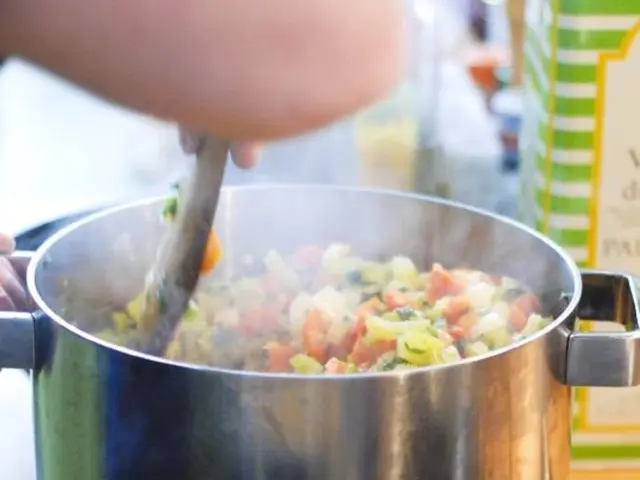Juicing Up Tomatoes: Autophagy's Role in Fruit Ripening and Beyond
Researchers unveiled a revitalization process in tomatoes comparable to humans, mirroring our biological regeneration.
Autophagy, a fancy term for a cellular cleanup crew, is the process that takes out the trash in living organisms except for bacteria. It's a natural, regulated mechanism that breaks down unnecessary or damaged components for recycling. And guess what? It's not just keeping our cells in tip-top shape, it's also controlling the ripening of juicy tomatoes!
Scientists have found that autophagy affects the production of ethylene, the primary hormone responsible for fruit ripening. In tomatoes, it slows down the ripening process, acting somewhat like the brakes in a car. By creating genetically modified tomatoes where autophagy could be temporarily paused, researchers discovered that the ripening process kicked into high gear earlier than usual.
Like in animals, autophagy seems to help tomatoes stay young longer. You might wonder why this matters – well, about 40% of the world's produce goes to waste, which is a massive issue from a financial, nutritional, and environmental standpoint. Understanding how autophagy controls ripening could help us reduce waste – from farms to our kitchen tables.
Now, scientists are eager to uncover the precise mechanisms that trigger ethylene production at the molecular level. If they can crack that code, it could open the door for exciting applications, like extending the shelf life of tomatoes and other fruits, and improving the sustainability of our global food system.
Prospects and Potential Applications
- Super Tomatoes: Genetic engineering could enhance autophagy in tomatoes, producing longer-lasting and more stable produce.
- TLC for Tomatoes: Post-harvest treatments, such as controlled environmental conditions, could influence autophagy levels, slowing the ripening process.
- Breeding a Better Batch: Identifying tomato varieties with naturally enhanced autophagy could lead to hardier fruits that can withstand longer transportation and storage.
With more insight into the remarkable relationship between autophagy and fruit ripening, we might just be able to juice tomato waste out of existence! 🍅🍹🚀
- The role of autophagy in fruit ripening, particularly in tomatoes, is being studied extensively in the field of science, as it has the potential to extend the lifespan of produce.
- By understanding the mechanisms that trigger ethylene production at the molecular level, researchers hope to develop medical-health-and-wellness solutions that improve the nutritional value of fruits and reduce food-and-drink waste.
- As autophagy controls the ripening process, lifestyle factors such as temperature and composition of food-and-drink can influence autophagy levels, impacting the ripening of tomatoes.
- In the realm of health-and-wellness, studying autophagy's impact on fruit ripening could pave the way for exciting advances in the management of various medical-conditions involving cellular aging.
- The juicing industry might also benefit from the science behind autophagy, as understanding the role of autophagy in the ripening of tomatoes could lead to the production of fresher, more nutritious juices.








